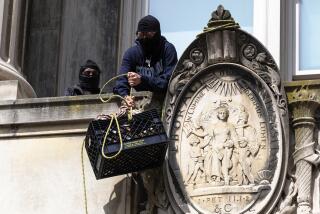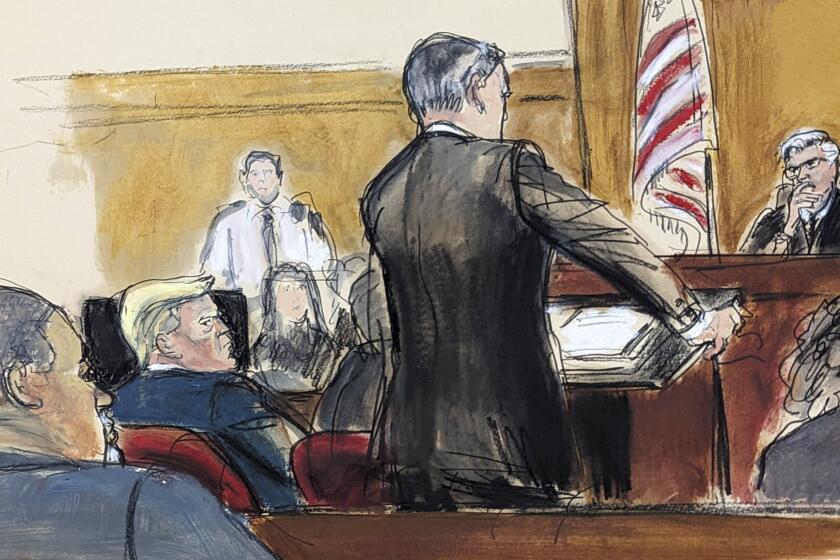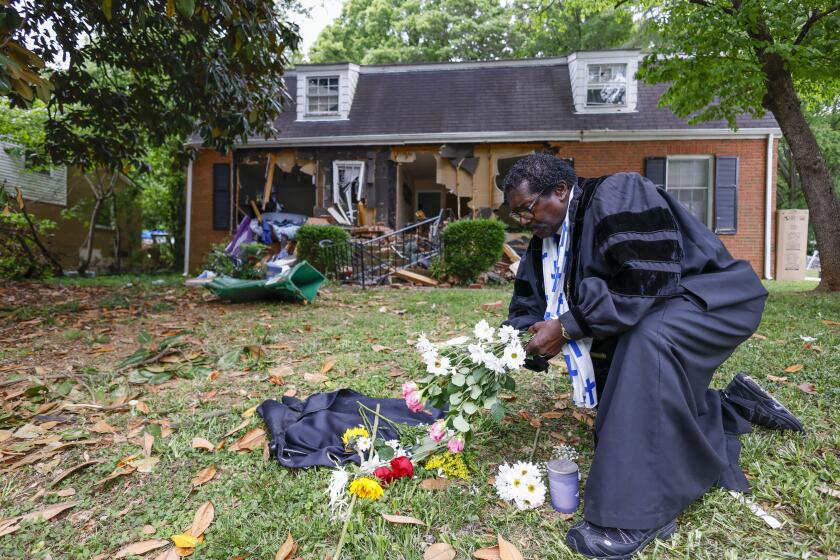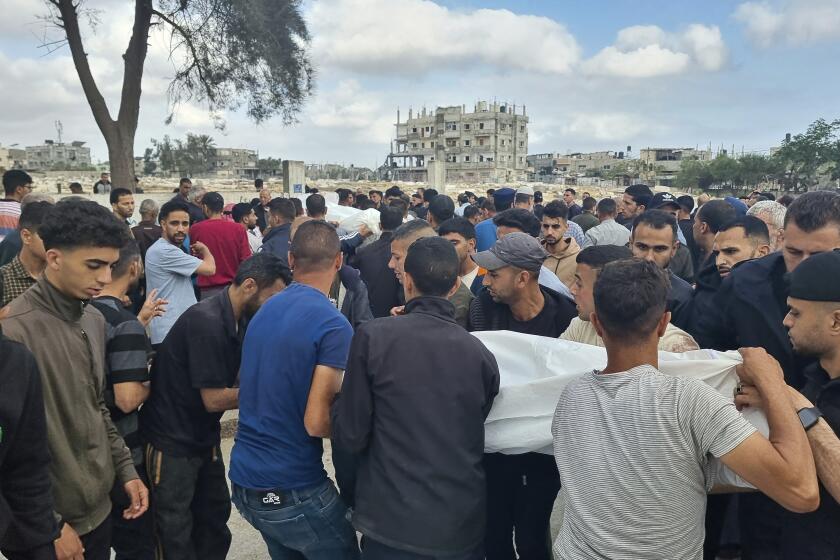Figuring out Putin
ALL THAT REMAINS OF SHAMIL BASAYEV, the man known as Russia’s Osama bin Laden, are his head and pieces of his prosthetic leg. Regardless of whether the blast that killed the Chechen separatist leader resulted from his own carelessness or Moscow’s cunning, his death could not have come at a better time for Russian President Vladimir V. Putin.
Basayev was a terrorist who claimed responsibility for a slew of horrific attacks on Russian civilians dating back a decade, including a siege and subsequent shootout at a school in Beslan in 2004 that killed more than 300 people, half of them children. Moscow’s chronic inability to capture him had been a source of embarrassment for Putin.
With Basayev’s death, the Russian leader is having a banner week. He also will be hosting a G-8 summit meeting in his beloved St. Petersburg starting Friday, and Russian and U.S. trade negotiators will try before then to remove the remaining obstacles to Russia’s ascension to the World Trade Organization.
After an initial post-Soviet honeymoon, the West has largely soured on Russia, and the Bush administration has notably soured on Putin, judging by recent criticisms leveled by Vice President Dick Cheney and others. Chechnya, where separatists have been battling Russian forces for the last decade, has been a source of contention between Moscow and the West. Russian leaders say it is an internal matter (their own war on terror), while Western observers decry Russian atrocities in the conflict.
The rebels have been in retreat for the last couple of years, but Putin would be mistaken if he is lulled into thinking that Chechnya is entirely a military problem. He also would be mistaken if he believes that young warlord Ramzan Kadyrov, son of the pro-Moscow Chechen leader who was assassinated in 2004, is the right man to rebuild the province.
Beyond Russia’s struggles in the Caucuses, Putin has reason to feel confident. Aided by high oil prices, Russia’s economy has stabilized. Moscow also has started reasserting itself in relations with the other former Soviet republics, and Putin has, somewhat autocratically, reasserted his government’s control over the private sector and provincial governments.
The United States and its allies need to engage Putin as he is, not as they would have wanted him to be. Too often, policy toward Moscow has been driven by wishful thinking. In the aftermath of the Soviet collapse, too many in Washington expected Russia to turn into a docile acolyte of the West -- another Hungary or Czech Republic. Just as that hope was unrealistic then, so it would be foolish now to allow an exaggerated sense of disappointment to drive relations.
Putin has autocratic tendencies -- his attacks on media freedoms and the virtual nationalization of the Yukos oil company come to mind -- that should not be sugarcoated. Nor should legitimate concerns about Russia’s economic policy, such as its lax views on intellectual property, be overlooked in the WTO talks. But Moscow should not be judged as if it were a potential member of the Atlantic alliance that went astray. If only because of its imperial and Soviet history, a post-communist Russia was always going to need to play an independent role in global affairs. The Bush administration needs to accept this, while working with Putin on a range of vital issues, such as nuclear nonproliferation and methods of dealing with Iran and North Korea.
Russia may not be the sterling democracy or reliable friend some had hoped it would become in the aftermath of the Cold War. But neither is it the “evil empire” it once was. The West needs to prod Putin into seeing areas of common interest, while treating Russia as an important, independent power.
More to Read
Start your day right
Sign up for Essential California for news, features and recommendations from the L.A. Times and beyond in your inbox six days a week.
You may occasionally receive promotional content from the Los Angeles Times.






